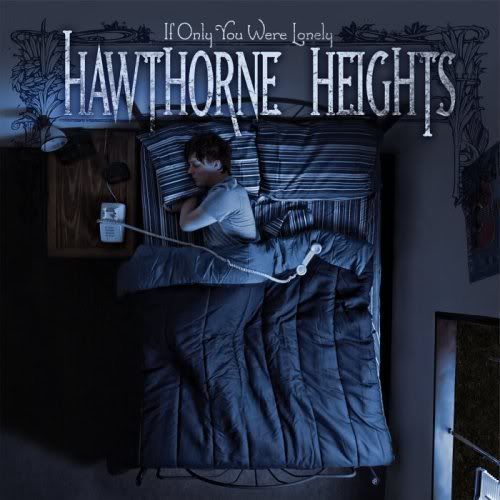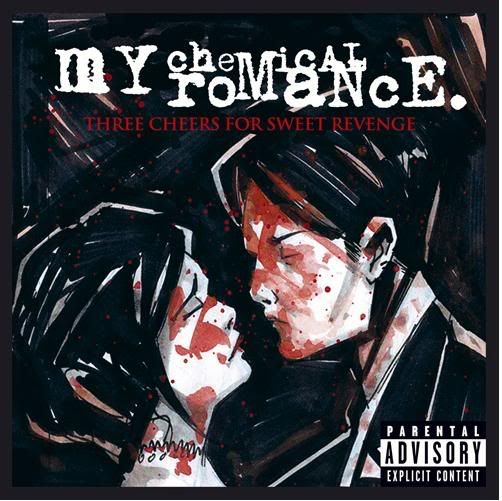 ichard Dyer’s article “In Defense of Disco” attempts to validate disco in the eyes of his readers. Disco was a place where the lines separating race, gender, class, and sexual orientation disappeared. Every one was equal, and you proved your worth through nothing else but the movement of your feet. However, today Disco is an often ridiculed genre. Dyer explains how it is more misunderstood than anything, and how Disco provides insight into human experience.
ichard Dyer’s article “In Defense of Disco” attempts to validate disco in the eyes of his readers. Disco was a place where the lines separating race, gender, class, and sexual orientation disappeared. Every one was equal, and you proved your worth through nothing else but the movement of your feet. However, today Disco is an often ridiculed genre. Dyer explains how it is more misunderstood than anything, and how Disco provides insight into human experience.I feel the same way about the Emo genre. I’ve already admitted to being a closet emo in an earlier post, so you should have seen this coming. Often the emo style and trends are understood to be all about skinny pants, sadness, and slitting wrists. I am out to prove that the Emo genre goes far beyond the shadow of side swept bangs. Thus, I write In Defense of Emo.
For those of you who do not know, “emo” is derived from the word “emotional.” So, the common mental image when one hears the word emo is

that of a sad kid with thick black eyeliner crying and rocking himself in the fetal position with his ear buds blocking out the uncaring world. Am I right?


But the emo genre is misunderstood, and offers a much deeper connection to the music. Dyer opens his article claiming that all his life he liked the wrong music. I can claim the same. Among my peers Classic rock is the worshipped music form, but I generally find it mediocre and old hat. I’ve lived in the South my entire life, so it is expected that the Country vein runs throughout my body.
I’ve never liked the genre, and I still get shocked reactions when I admit so. I prefer to find the small bands, the ones who write lyrics for individual listeners and not mass audiences. I found this in Emo music. I love the fact that these singers wear their hearts on their sleeves, or more appropriately, on their wrists. So Emo is often written off as just one more sad song. But the connections the writers have to their sad lyrics provide a catharsis for its listeners. I believe the reputation stems from the understanding that the lyrics are sad, with a sad ending.
How can this lead to a cleansed, satisfied feeling? Ironically, if you are having a bad day and you listen to a sad song, you connect with the lyrics and that sense of similarity can give you a positive feeling. Someone knows how or what you are feeling and is talented enough to put your thoughts into song. There are plenty of emos (and closet emos like myself) who lead happy lives, but just appreciate the Emo genre for the raw emotions it offers.
No other genre has as successfully portrayed the heartbreak in life. Rock music may have sad ballads, but the rough voice of the singers give a more “disgusted with the situation” feel to the songs. Country singers’ sad songs sound like they are whining. And pop singers lead too perfect lives to write a genuinely sad song. Emo singers have the understanding of pain, but the skill to sing about it without hate and without whining. So the Emo genre is an irreplaceable icon in human experience. Without it, those rainy days could be countered with a peppy song about the perfect car, the perfect boyfriend, and the perfect life. On a day when my life isn’t going so hot, those songs don’t make my situation look any better. They make me want to, well, you know what emo kids do.

This is a great post full of humor and insight.
ReplyDeleteIt is interesting that you defend emo as a genre that important because of its message. Most other genres often fall into being about the characteristics of the music itself (speed metal, garage rock, trance). Do you think that part of the reason emo gets such a bad rap is because it focuses more on content than technique?
Oh, and kids remember, it is down the stream not across the river.
That could be very plausible. Many people say that all emo bands sound the same. I disagree, simply because I have a fine-tuned ear for the genre. But if that is so, that would explain the "uncoolness" of emo. Some don't understand that it's about the feeling in the words, not the riffs of the guitar.
ReplyDelete